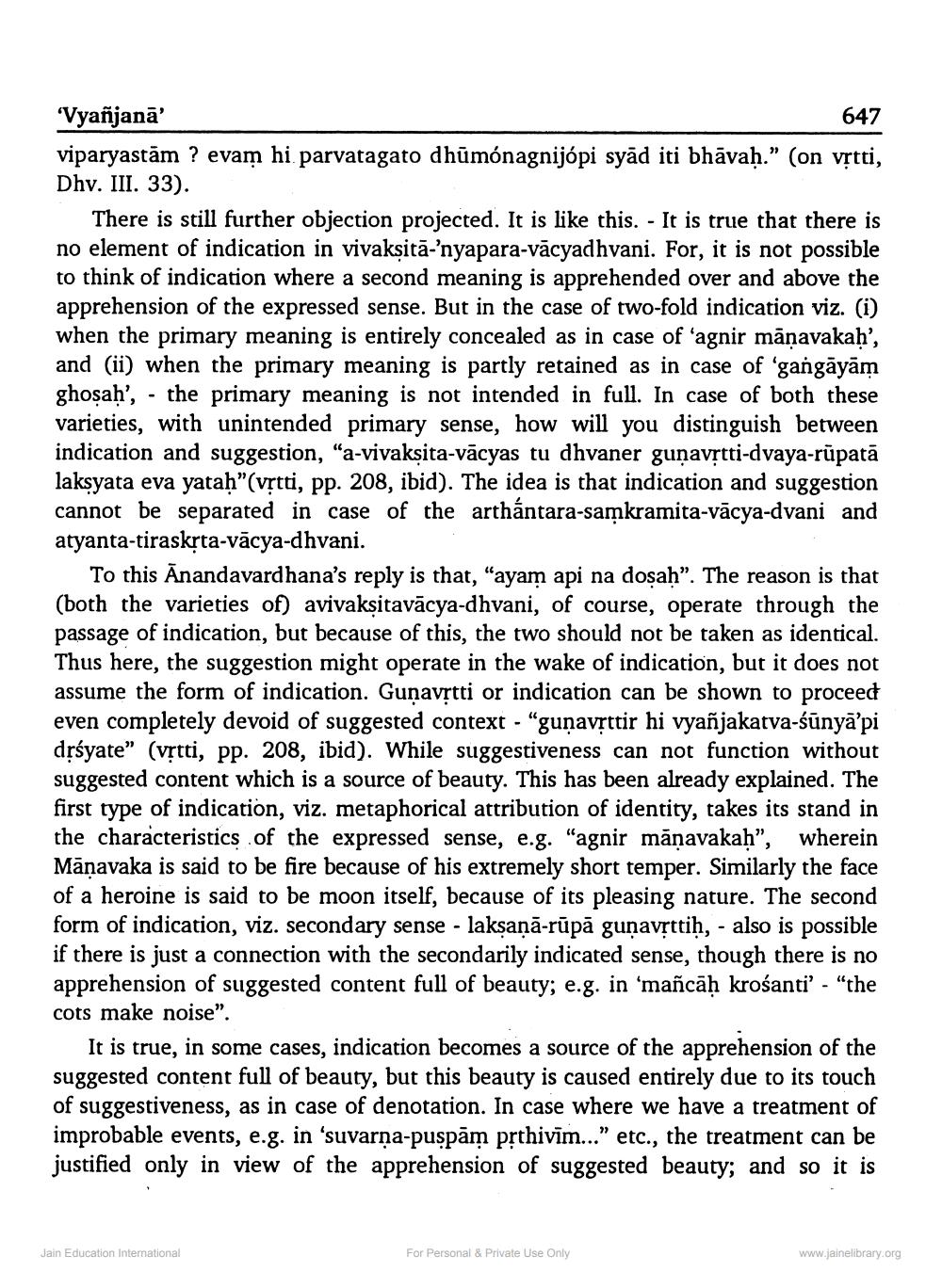________________
'Vyañjana'
647 viparyastām ? evam hi parvatagato dhūmónagnijópi syād iti bhāvah." (on vịtti, Dhv. III. 33).
There is still further objection projected. It is like this. - It is true that there is no element of indication in vivaksitā-'nyapara-vacyadhvani. For, it is not possible to think of indication where a second meaning is apprehended over and above the apprehension of the expressed sense. But in the case of two-fold indication viz. when the primary meaning is entirely concealed as in case of 'agnir mi and (ii) when the primary meaning is partly retained as in case of 'gangāyām ghosah', - the primary meaning is not intended in full. In case of both these varieties, with unintended primary sense, how will you distinguish between indication and suggestion, "a-vivaksita-vācyas tu dhvaner gunavrtti-dvaya-rūpatā laksyata eva yataḥ”(vṛtti, pp. 208, ibid). The idea is that indication and suggestion cannot be separated in case of the arthántara-samkramita-vācya-dva atyanta-tiraskrta-vācya-dhvani.
To this Anandavardhana's reply is that, "ayam api na dosah”. The reason is that (both the varieties of) avivaksitavācya-dhvani, of course, operate through the passage of indication, but because of this, the two should not be taken as identical. Thus here, the suggestion might operate in the wake of indication, but it does not assume the form of indication. Gunavrtti or indication can be shown to proceed even completely devoid of suggested context - "gunavrttir hi vyañjakatva-śünya'pi drśyate" (vrtti, pp. 208, ibid). While suggestiveness can not function without suggested content which is a source of beauty. This has been already explained. The first type of indication, viz. metaphorical attribution of identity, takes its stand in the characteristics of the expressed sense, e.g. "agnir mānavakah", wherein Māṇavaka is said to be fire because of his extremely short temper. Similarly the face of a heroine is said to be moon itself, because of its pleasing nature. The second form of indication, viz. secondary sense - laksaņā-rūpā gunavsttiḥ, - also is possible if there is just a connection with the secondarily indicated sense, though there is no apprehension of suggested content full of beauty; e.g. in 'mañcāḥ krośanti' - "the cots make noise".
It is true, in some cases, indication becomes a source of the apprehension of the suggested content full of beauty, but this beauty is caused entirely due to its touch of suggestiveness, as in case of denotation. In case where we have a treatment of improbable events, e.g. in 'suvarna-puspām prthivim..." etc., the treatment justified only in view of the apprehension of suggested beauty; and so it is
Jain Education Interational
For Personal & Private Use Only
www.jainelibrary.org




